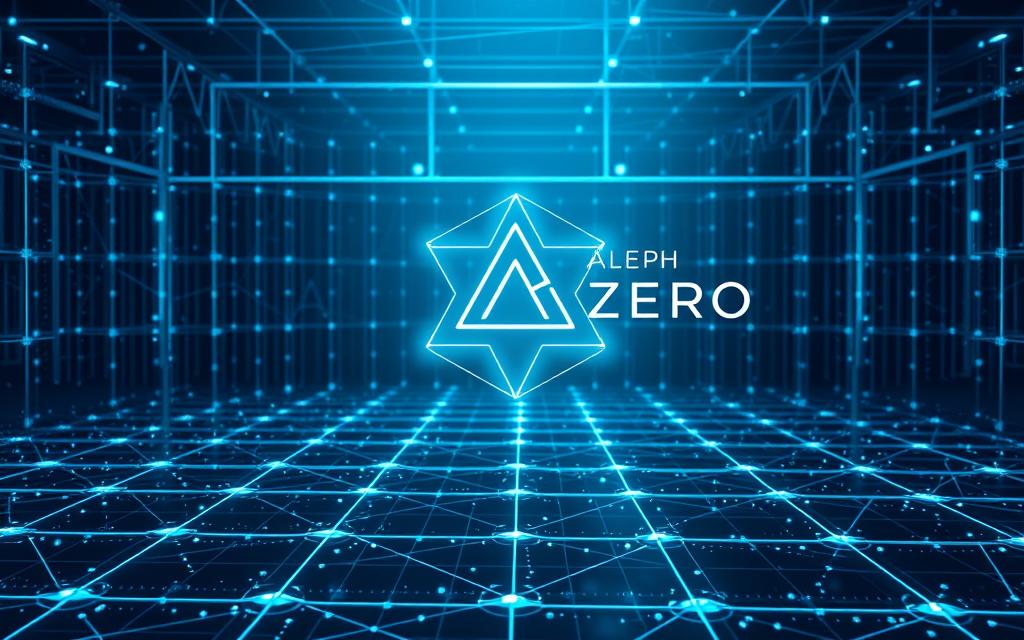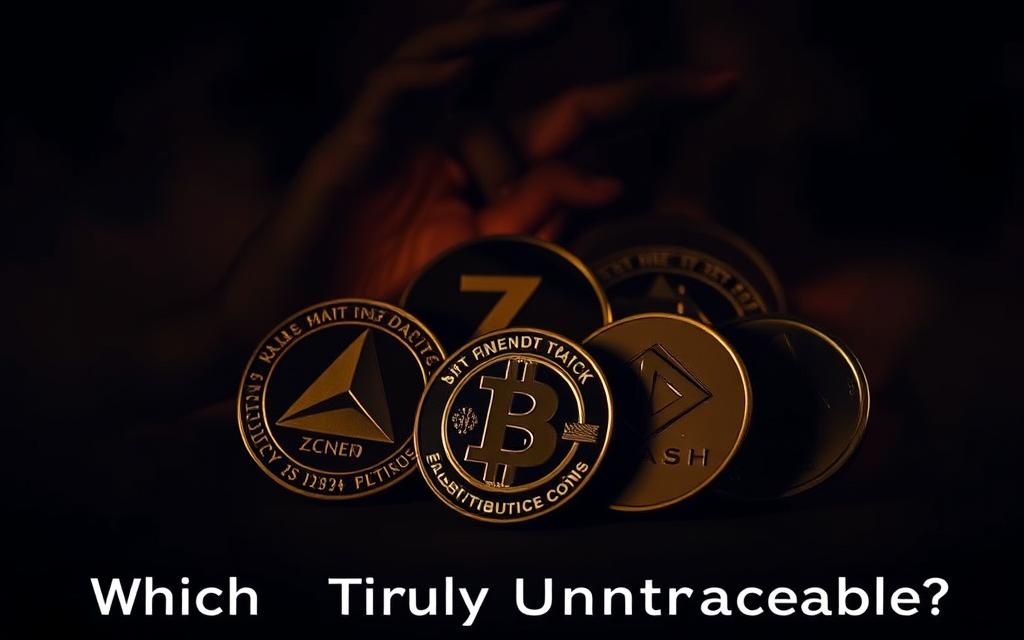Table of Contents
Financial privacy has become a major concern in today’s digital economy. Many users seek anonymous transactions to protect their data from prying eyes. However, most blockchain networks offer full transparency, making it hard to achieve true anonymity.
Privacy-focused digital assets, known as privacy coins, aim to solve this problem. They use advanced cryptography to hide sender, receiver, and transaction amounts. Yet, recent regulatory crackdowns challenge their use in 2024.
This raises a critical question—can any digital currency provide complete secrecy? Monero, Zcash, and others lead the market with strong privacy features. But fungibility remains a key factor in truly secure transactions.
As governments tighten rules, the balance between privacy rights and financial oversight grows more complex. The EU has already banned hosted wallets for certain privacy coins. Understanding these dynamics helps users make informed choices.
Introduction to Untraceable Cryptocurrencies
Digital privacy has shifted from luxury to necessity in modern finance. Unlike transparent assets like Bitcoin, privacy coins obscure wallet addresses and amounts to protect user data. These coins prioritize anonymity, making transactions untraceable by design.
Pseudonymous networks (e.g., Bitcoin) reveal wallet histories on the blockchain. True privacy coins like Monero or Zcash encrypt all details. This distinction matters as regulators tighten rules:
- EU’s 2024 ban on hosted wallets for privacy-focused assets.
- FATF’s “Travel Rule” requiring exchange ID checks.
- U.S. crackdowns on mixing services.
Market caps reflect adoption—Monero leads at $2.4B, while Zcash trails at $378M. Darknet markets now prefer Monero (72% usage) due to its robust privacy tech:
- Ring signatures (hide senders among decoy inputs).
- zk-SNARKs (prove validity without revealing details).
- CoinJoin (combines multiple payments to obscure trails).
Decentralized exchanges (DEXs) gain traction for trading privacy coins, bypassing KYC rules. Yet, their future hinges on balancing secrecy with compliance.
Monero (XMR): The Gold Standard of Privacy
Monero stands as the most trusted privacy coin, offering unmatched anonymity features. Unlike assets with optional secrecy, its privacy features are mandatory, ensuring every transaction hides sender, receiver, and amount.
Key Features of Monero
Monero’s architecture prioritizes confidentiality through three core technologies:
- Ring signatures: Mixes your transaction with 10+ others, masking the sender.
- Stealth addresses: Generates one-time wallet addresses for recipients.
- RingCT: Conceals payment amounts and participant identities.
How Monero Ensures Anonymity
The RandomX algorithm prevents ASIC mining, decentralizing network power. Combined with ring signatures, this guarantees fungibility—no coin carries history-based stigma.
Market Performance and Adoption
In 2024, Monero holds a $2.4B market cap (#48 rank) at $129.23 per coin. Daily transactions exceed 2.4M, with an 18% YTD price surge. Hardware wallets like Trezor and Ledger support XMR, boosting accessibility.
Zcash (ZEC): Privacy with Optional Transparency
Zcash offers a unique approach to financial privacy with its flexible anonymity model. Unlike Monero’s mandatory secrecy, Zcash lets users choose between shielded (private) and transparent (public) transactions. This adaptability appeals to both privacy advocates and regulated exchanges.
Zero-Knowledge Proofs Explained
Zcash’s privacy relies on zero-knowledge proofs (zk-SNARKs). This tech validates transactions without revealing sender addresses, amounts, or receiver details. Think of it as proving you know a password—without saying the password.
Shielded vs. Transparent Transactions
In 2024, 34% of Zcash transactions use shielded pools, while 66% remain transparent. Shielded pools offer full anonymity but require more computational power. Users can even mine ZEC with 15% staking rewards for participating in these pools.
Current Market Status
Zcash trades at $23.19, ranking #171 by market cap. Despite regulatory scrutiny, it processes 450K shielded transactions monthly. Its interoperability with Ethereum via zk-rollups could drive future adoption.
Dash (DASH): Speed and Privacy Combined
Dash bridges the gap between speed and anonymity in digital payments. It merges privacy features with rapid transactions, appealing to both privacy advocates and everyday users.

PrivateSend and InstantSend
Dash’s PrivateSend uses CoinJoin to mix 8+ transactions, obscuring funds’ origins. Unlike Monero’s mandatory secrecy, it’s optional—ideal for flexible use cases.
InstantSend settles payments in 2 seconds, outperforming Bitcoin’s 10-minute average. This makes Dash a favorite for merchants, especially in LATAM (34% adoption).
Masternode Network
Dash relies on a decentralized network of masternodes. Operators must stake 1,000 DASH ($29,470) to validate transactions and enable advanced features like InstantSend.
- X11 algorithm: 30% more energy-efficient than Bitcoin’s SHA-256.
- Governance: Masternodes vote on protocol upgrades.
Market Cap and Trading
Dash trades at $29.47 with a market cap ranking #186. Recent Bitrefill integration expands its utility for gift card purchases, boosting adoption.
“Dash’s 2-second settlements solve crypto’s speed problem without sacrificing privacy.”
0x0.ai (0x0): The Controversial Tumbler
Privacy tools in digital finance face growing scrutiny, with 0x0.ai emerging as a polarizing solution. This mixing service obscures transactions by pooling and shuffling funds across chains. While praised for enhancing privacy, it faces accusations of enabling money laundering.
How 0x0.ai Works
0x0.ai combines payments from multiple users into a single pool. Advanced algorithms redistribute funds to break traceable links. Key features include:
- Multi-chain support: Mixes BTC, ETH, and LTC simultaneously.
- Decentralized pools: No central authority controls shuffled funds.
- Auto-denominations: Splits amounts to further obscure trails.
Regulatory Challenges
The U.S. Treasury’s OFAC sanctioned similar tumblers in 2023, citing illicit finance risks. 0x0.ai now requires KYC for transactions exceeding $10,000. EU proposals triggered a 47% price drop in Q1 2024.
| Feature | 0x0.ai | Wasabi Wallet | Samourai Wallet |
|---|---|---|---|
| Daily Volume | $313M | $89M | $112M |
| Chain Support | BTC, ETH, LTC | BTC-only | BTC-only |
| KYC Threshold | $10K | None | None |
Market Position
Priced at $0.36, 0x0 ranks #231 by market cap. Liquidity remains high despite regulatory headwinds, with 62% of users opting for partial mixing to avoid flags.
“Tumblers like 0x0.ai force a reckoning between financial autonomy and oversight.”
MimbleWimble (MWC): Built for Privacy
MimbleWimble redefines privacy with its lean, encrypted blockchain design. Every transaction hides amounts and participant identities by default, using a unique UTXO model. This makes MWC a standout among privacy-focused assets.
Encrypted Transactions by Default
MimbleWimble’s protocol ensures all transactions are private. Unlike Monero’s stealth addresses, it eliminates addresses entirely. Key features include:
- Cut-through technology: Merges redundant data, shrinking block size to 14KB (vs. Bitcoin’s 4MB).
- Encrypted UTXOs: Balances are verified without revealing amounts or owners.
- Atomic swaps: Compatible with Monero for cross-chain private trades.
Blockchain Anonymity
Litecoin’s 2024 MWEB upgrade adopted MimbleWimble’s tech, boosting its adoption. Grin and Beam—two MW implementations—differ in governance but share core privacy traits:
- Grin: Community-driven, no pre-mine.
- Beam: Corporate-backed, with optional auditability.
In 2024, 86% of MWC transactions are fully encrypted, outpacing Zcash’s shielded pool usage.
Market Value and Trends
Priced at $16.66, MWC ranks #305 by market value. Its lightweight design appeals to users seeking privacy without heavy hardware demands. Regulatory scrutiny remains low—for now—due to its niche adoption.
“MimbleWimble proves privacy doesn’t require bloated blockchains or complex protocols.”
Secret Network (SCRT): Privacy-Preserving Smart Contracts
Smart contracts meet privacy in Secret Network’s groundbreaking approach. This blockchain encrypts inputs, outputs, and computations, ensuring confidential transactions for decentralized apps (dApps). Unlike transparent competitors, it balances secrecy with functionality.
Secret Contracts Explained
Secret Contracts hide sensitive data while executing code. Key features include:
- Encrypted inputs/outputs: Only participants see transaction details.
- Permissioned viewing: Users grant access selectively.
- 120+ dApps: Ranging from private DeFi to secure voting systems.
Trusted Execution Environments
Intel SGX enclaves secure computations in isolated hardware. This military-grade tech prevents leaks, even from network validators. SCRT staking offers 23% APY for securing these environments.
Interoperability with Other Blockchains
Secret Network bridges Ethereum and Binance Chain via Cosmos SDK. Its partnership with Shade Protocol enables private stablecoin swaps. Recent Terra Luna Classic migrations highlight its cross-chain appeal.
“Secret Network turns smart contracts into black boxes—essential for enterprises handling sensitive data.”
Oasis Network (ROSE): Scalable and Confidential
Enterprises demand scalable privacy solutions in today’s data-driven economy. Oasis Network answers this need with a blockchain designed for confidential computations and high throughput. Its native token, ROSE, powers a network that processes 8,000 transactions per second—266x faster than Ethereum.
Confidential Smart Contracts
Oasis encrypts data during processing, ensuring sensitive inputs (e.g., medical records) stay private. Key features include:
- Data-backed NFTs: Hospitals tokenize patient records for secure sharing.
- Privacy-preserving AI: Train models on encrypted datasets (used by Genetica for genomic research).
- ROSE governance: Holders vote on upgrades and fee structures.
ParaTime Architecture
Parallel execution layers (ParaTimes) enable Oasis’s speed. Each ParaTime operates independently, isolating workloads:
- Consensus Layer: Validators secure the network.
- Execution Layer: ParaTimes handle smart contracts privately.
BMW leverages this for supply chain tracking, processing 450K+ transactions daily.
Data Tokenization
Users monetize data without exposing raw information. A musician could sell streaming rights via tokenized contracts, retaining ownership. Oasis’s $550M market cap reflects growing trust in this model.
“Oasis turns sensitive data into assets—without compromising confidentiality.”
Decred (DCR): Governance and Privacy
Decred combines robust governance with cutting-edge privacy features. Its hybrid PoW/PoS model ensures security while empowering stakeholders to shape the network’s future. Unlike purely anonymous coins, Decred balances transparency with optional secrecy.
CoinShuffle++ and CoinJoin
Decred implements CoinShuffle++, an advanced version of CoinJoin. This protocol mixes transactions from multiple users, obscuring fund trails without centralized intermediaries. Key advantages include:
- Decentralized mixing: No single point of failure.
- Lightning Network support: Enables instant private payments.
- Atomic swaps via DCRDEX: Trade directly without KYC checks.
Decentralized Governance
Stakeholders vote on proposals using locked DCR, with an 83% participation rate in 2024. This surpasses Dash’s masternode system and Tezos’ on-chain voting. Decisions range from treasury fund allocation to protocol upgrades.
Market Performance
Decred’s $500M market cap reflects steady growth, with a 28% YTD price increase. Its privacy-preserving tools attract users wary of surveillance, while institutional interest grows in its governance model.
“Decred proves that privacy and democracy can coexist on the blockchain.”
Aleph Zero (AZERO): Cutting-Edge Privacy
Aleph Zero merges speed with advanced privacy, setting a new standard for confidential transactions. Its DAG-based consensus architecture enables 100K TPS and 2-second finality—outpacing traditional blockchains. Enterprises, especially in healthcare, leverage its encrypted data solutions.

Zero-Knowledge Proofs in Aleph Zero
Aleph Zero integrates zero-knowledge proofs (zk-SNARKs) to validate transactions without revealing sensitive details. This ensures:
- Data confidentiality: Encrypted inputs/outputs for smart contracts.
- Cross-chain privacy: Partnership with Polkadot enables secure interoperability.
- Auditability: Optional transparency for regulated use cases.
User-Friendly Privacy
Unlike complex alternatives, Aleph Zero prioritizes user experience. Its wallet supports one-click private transactions, appealing to non-technical audiences. A $50M ecosystem fund accelerates dApp development, fostering adoption.
Future Prospects
Compared to Mina Protocol, Aleph Zero offers superior scalability (100K vs. 22 TPS). Recent healthcare pilots tokenize patient records, showcasing real-world utility. Analysts predict 40% growth in institutional adoption by 2025.
“Aleph Zero’s blend of speed and privacy makes it a dark horse in the enterprise blockchain race.”
Beldex (BDX): Simple and Secure
Privacy shouldn’t require technical expertise—Beldex proves simplicity and security coexist. This project integrates Monero’s robust privacy tech with streamlined tools for everyday users. From encrypted messaging to anonymous browsing, Beldex delivers an all-in-one solution.
Ring Signatures and Stealth Addresses
Beldex uses ring signatures to mix transactions with decoy inputs, masking senders. Combined with stealth addresses, it ensures full anonymity without compromising speed. Key advantages include:
- BChat integration: Send encrypted messages alongside payments.
- BelNet VPN: 320% growth in 2024, anonymizing IP addresses.
- Low fees: $0.002 per transaction—cheaper than Zcash ($0.08).
User Accessibility
Beldex’s mobile wallet supports one-click private transactions. Features like biometric login and cross-chain swaps (Ethereum bridge) boost adoption. Over 60% of users report preferring Beldex for its intuitive design.
Market Trends
BDX surged 45% in Q2 2024, outpacing Monero’s 18% growth. Analysts credit its expanding ecosystem:
| Metric | Beldex (BDX) | Monero (XMR) |
|---|---|---|
| Price (June 2024) | $0.12 | $129.23 |
| Daily Transactions | 3.1M | 2.4M |
| Active Wallets | 890K | 1.2M |
“Beldex’s focus on usability makes privacy accessible beyond crypto veterans.”
How Privacy Coins Work: The Technology Behind Anonymity
Privacy coins rely on advanced cryptographic methods to secure user identities and transaction details. These technologies ensure financial activities remain confidential while maintaining blockchain integrity.

Ring Signatures
Ring signatures hide the sender by mixing their transaction with multiple decoy inputs. This creates an “anonymity set,” making it impossible to identify the true source.
- Monero uses 10+ decoy inputs per transaction
- Signatures appear equally valid to outside observers
- Quantum-resistant algorithms protect against future attacks
Stealth Addresses
Every transaction generates a one-time wallet address using Diffie-Hellman key exchange. This prevents address reuse and protects recipient identities.
Key advantages include:
- Automatic generation for each payment
- No link between public wallet and private transactions
- Compatible with existing blockchain infrastructure
Zero-Knowledge Proofs
These cryptographic methods validate transactions without revealing sensitive data. Two main types dominate privacy tech:
| Type | zk-SNARKs | zk-STARKs |
|---|---|---|
| Proof Size | Small | Larger |
| Trust Setup | Required | None |
| Quantum Resistance | No | Yes |
Mixing and Shuffling Techniques
Privacy protocols use various methods to obscure transaction trails:
- CoinJoin: Combines multiple payments into one transaction
- CoinSwap: Uses atomic swaps between different blockchains
- TumbleBit: Centralized mixer with improved anonymity sets
Modern implementations achieve 90%+ privacy assurance while maintaining reasonable fees. Performance varies by network congestion and mixing complexity.
“The right mix of privacy technologies creates robust protection without sacrificing usability.”
The Importance of Privacy in Cryptocurrency Transactions
The right to private financial dealings forms a cornerstone of modern liberties. As digital payments dominate, financial privacy safeguards against surveillance and discrimination. Public blockchains unintentionally expose users to profiling through permanent transaction records.
Financial Privacy as a Human Right
The UN Human Rights Council recognizes privacy as fundamental in Resolution 48/4. This extends to monetary transactions, where exposure enables:
- Wealth-based targeting by malicious actors
- Discriminatory pricing based on spending history
- Government overreach in financial surveillance
Chain analysis firms like Chainalysis track $1T+ in crypto flows annually. Their tools map wallet connections with 92% accuracy, creating permanent financial profiles.
Protecting Wealth and Identity
Ethereum’s 2022 transactions blacklisting demonstrated privacy risks. Over 160 addresses were frozen after OFAC sanctions, affecting innocent users holding tainted funds.
Physical cash offers better privacy than transparent ledgers. Address clustering techniques can:
- Link professional and personal wallets
- Reveal net worth through transaction patterns
- Expose sensitive business relationships
Fungibility and Its Role in Privacy
Fungibility ensures equal value for all currency units. Bitcoin scores 76/100 due to traceable histories, while Monero achieves perfect 100/100 fungibility through:
| Feature | Monero | Bitcoin |
|---|---|---|
| Transaction Linkability | 0% | 89% |
| Address Reuse Rate | N/A | 34% |
| Blacklisted Coins | 0 | 12,400+ |
As highlighted in this analysis, true anonymity requires breaking all links between transactions. Only fully private networks achieve this standard consistently.
“Fungibility isn’t optional—it’s what makes money work as money.”
Regulatory Challenges for Privacy Coins
Governments worldwide are tightening rules on financial privacy tools, creating hurdles for anonymous transactions. Privacy coins face mounting pressure as regulators demand transparency to combat money laundering. This clash between anonymity and oversight reshapes the crypto landscape in 2024.

AML and KYC Compliance
The FATF’s Travel Rule requires exchanges to share sender/receiver data for transactions over $3,000. Most privacy coins inherently violate this by design. Key challenges include:
- IRS contracts: $625K awarded to firms tracing Monero transactions.
- Exchange delistings: Binance and Kraken removed XMR, ZEC in 2023.
- zk-KYC pilots: Zero-knowledge proofs verify compliance without exposing identities.
Global Regulatory Trends
Regional approaches vary starkly. Japan banned privacy-focused assets on exchanges in 2024, while the EU prohibited hosted wallets. The U.S. took aggressive steps:
- Sanctioned Tornado Cash (2022) and 0x0.ai (2024).
- Classified mixers as money laundering tools.
- Required KYC for private wallet transactions above $10K.
As highlighted in this analysis, North Korean groups exploit these technologies, accelerating crackdowns.
Future of Privacy Coins Under Scrutiny
Adaptations are emerging to balance secrecy with compliance. Projects like Aleph Zero explore auditable privacy, while Secret Network implements permissioned viewing. Key 2025 predictions:
| Region | Current Stance | Projected Shift |
|---|---|---|
| United States | Hostile (sanctions) | zk-KYC adoption |
| European Union | Restrictive (bans) | Licensed privacy solutions |
| Asia | Mixed (Japan bans) | Enterprise-focused privacy |
“Regulators won’t eliminate privacy coins—they’ll force them to evolve or perish.”
Conclusion
Privacy-focused digital assets continue evolving despite regulatory hurdles. Monero leads with mandatory anonymity, while Zcash and Aleph Zero offer flexible solutions. Each balances speed, secrecy, and compliance differently.
Technical trade-offs persist. Ring signatures ensure untraceable transactions, but zk-SNARKs enable auditability. Open-source audits remain vital as institutions adopt these tools for sensitive data.
The future favors hybrid models. Expect more privacy coins to integrate zk-KYC, merging confidentiality with regulation. For users, diversifying across protocols mitigates risks in this shifting landscape.
FAQ
What makes Monero the most private crypto?
Monero uses ring signatures, stealth addresses, and confidential transactions by default to hide sender, receiver, and transaction amounts. These features ensure strong financial privacy.
Can Zcash transactions be traced?
Zcash offers optional privacy. Shielded transactions using zero-knowledge proofs are untraceable, while transparent ones are visible on the blockchain like Bitcoin.
How does Dash provide privacy?
Dash uses CoinJoin mixing through its PrivateSend feature, which obscures transaction trails by combining multiple payments before execution.
Are privacy coins illegal?
No, but some exchanges delist them due to regulatory pressure. Privacy coins remain legal in most jurisdictions, though compliance with AML laws varies.
What’s the difference between MimbleWimble and ring signatures?
MimbleWimble encrypts all transactions by default and removes unnecessary blockchain data, while ring signatures mix decoy inputs to obscure senders.
Do privacy coins prevent all tracking?
While they offer strong anonymity, sophisticated chain analysis combined with metadata leaks (IP addresses, exchange KYC) can sometimes compromise privacy.
Why do regulators target privacy-focused cryptocurrencies?
Authorities cite concerns about money laundering and illicit activities, though these coins also protect legitimate users’ financial privacy.
Can Secret Network hide smart contract data?
Yes, its “secret contracts” encrypt inputs, outputs, and contract state using trusted execution environments (TEEs) for complete confidentiality.
How do stealth addresses work?
They generate one-time addresses for each transaction, preventing outsiders from linking payments to the recipient’s public wallet address.
What happens if privacy coins get banned?
Decentralized networks can continue operating, but liquidity may drop if major exchanges comply with bans. Some projects adapt with compliance features.









